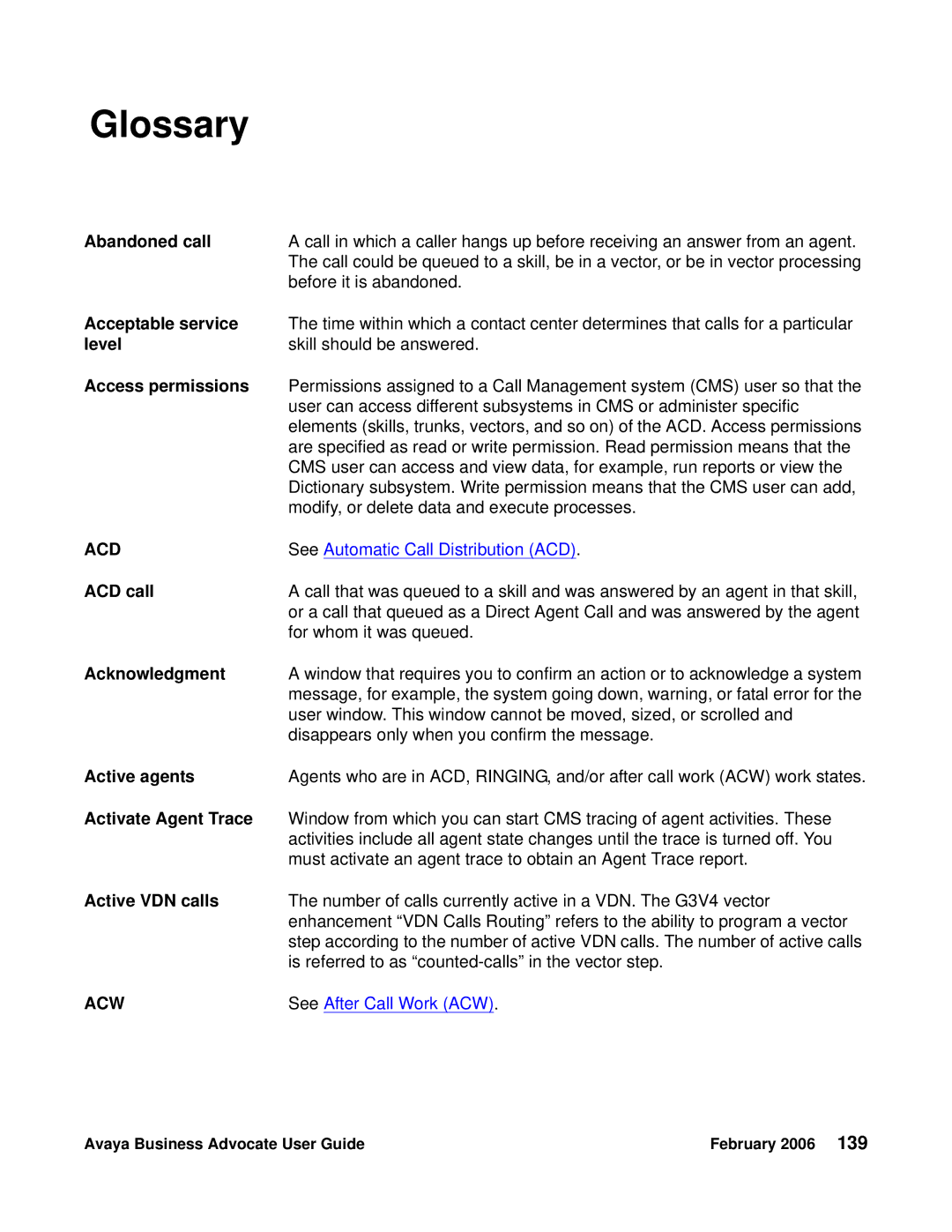Glossary
Abandoned call | A call in which a caller hangs up before receiving an answer from an agent. |
| The call could be queued to a skill, be in a vector, or be in vector processing |
| before it is abandoned. |
Acceptable service | The time within which a contact center determines that calls for a particular |
level | skill should be answered. |
Access permissions | Permissions assigned to a Call Management system (CMS) user so that the |
| user can access different subsystems in CMS or administer specific |
| elements (skills, trunks, vectors, and so on) of the ACD. Access permissions |
| are specified as read or write permission. Read permission means that the |
| CMS user can access and view data, for example, run reports or view the |
| Dictionary subsystem. Write permission means that the CMS user can add, |
| modify, or delete data and execute processes. |
ACD | See Automatic Call Distribution (ACD). |
ACD call | A call that was queued to a skill and was answered by an agent in that skill, |
| or a call that queued as a Direct Agent Call and was answered by the agent |
| for whom it was queued. |
Acknowledgment | A window that requires you to confirm an action or to acknowledge a system |
| message, for example, the system going down, warning, or fatal error for the |
| user window. This window cannot be moved, sized, or scrolled and |
| disappears only when you confirm the message. |
Active agents | Agents who are in ACD, RINGING, and/or after call work (ACW) work states. |
Activate Agent Trace | Window from which you can start CMS tracing of agent activities. These |
| activities include all agent state changes until the trace is turned off. You |
| must activate an agent trace to obtain an Agent Trace report. |
Active VDN calls | The number of calls currently active in a VDN. The G3V4 vector |
| enhancement “VDN Calls Routing” refers to the ability to program a vector |
| step according to the number of active VDN calls. The number of active calls |
| is referred to as |
ACW | See After Call Work (ACW). |
Avaya Business Advocate User Guide | February 2006 139 |
